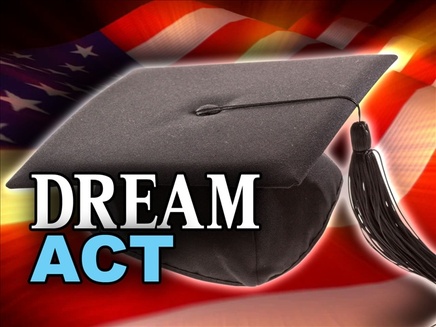Democrats fall short in pivotal Dream Act vote

Despite continued rhetoric that Republicans blocked the Dream Act this past weekend, Democrats have only themselves to blame for failing to gather enough votes for the bill.
Republicans filibustered the partial immigration reform bill that would have granted a pathway to citizenship for the children of illegal immigrants, from their teenage years up into their mid 30's. While Republicans filibustered and Democrats took the initiative to invoke cloture, the Dream Act fell five votes short of proceeding to the Senate floor for a final vote. What that means in mathematical terms has more bearing on the current Democratically-controlled Senate than it does on the Republican minority.
Although some Republicans such as Senators Sam Brownback (R-Kan.) and Kay Bailey Hutchinson (R-Tx.) have previously voted for the bill in the past only to now pledge a vote against it, their "no" votes wouldn't have had a significant impact on getting the issue on the pathway to final passage if Democrats would have used their strong majority to end the Republican filibuster. The fact of the matter is that a total of six Democrats held back from ending the Republican filibuster on the bill. Senator Max Baucus (D-Mont.), Senator Jon Tester (D-Mont.), Senator Kay Hagan (D-N.C.), Senator Ben Nelson (D-Neb.), and Senator Mark Pryor (D- Ark.) amounted to the five Senators who joined Republicans to prevent the Dream Act from proceeding. A sixth Democrat, the recently elected Senator Joe Manchin of West Virginia, skipped the crucial votes on the Dream Act in addition to the other hot button issue of 'Don't Ask, Don't Tell'. Manchin was chosen by the voters of West Virginia in a special election held this past November.
In the end, the Dream Act failed in the Senate chamber over the weekend by a vote of 55-41. In other words, had those five Democratic votes come through to invoke cloture, the bill would have proceeded forward. Assuming that all votes would have remained mostly consistent along party lines in the final vote, the Dream Act would have overcome a Republican filibuster, would have eventually been sent to the President's desk, and would have been signed into law by President Obama to take effect. It would have further solidified the Hispanic base for the 2012 election. And had Manchin of West Virginia participated in the vote, Democrats would have had more than what they needed to push onward.
Reflecting upon the fact that six Democrats held back from supporting the measure demonstrates that being against the legislation is predominantly a Republican stance, but that it is not strictly a Republican stance. What's not portrayed by most mainstream publications is the very notion that some Democrats are also against it. They may be in the minority of their party, but the fact of the matter is that these six Democratic individuals still have a "D" attached to their political affiliation.
It appears as if the Democrats, and not the Republicans, have dropped the ball on immigration reform. The failure on the part of the Democratic majority in Congress could very well cost president Obama the 2012 election.
Students affected by the failed vote are vowing to keep up the fight on the immigration front, though. After the vote, the Dream Activist Network issued a call to their supporters to keep the fight going.
"We will fight in every city, in every state, however long it takes. There are battles everywhere, over access to education, in-state tuition, financial aid, driver's licenses...the list goes on. We have just begun," a blog post on their website stated.




